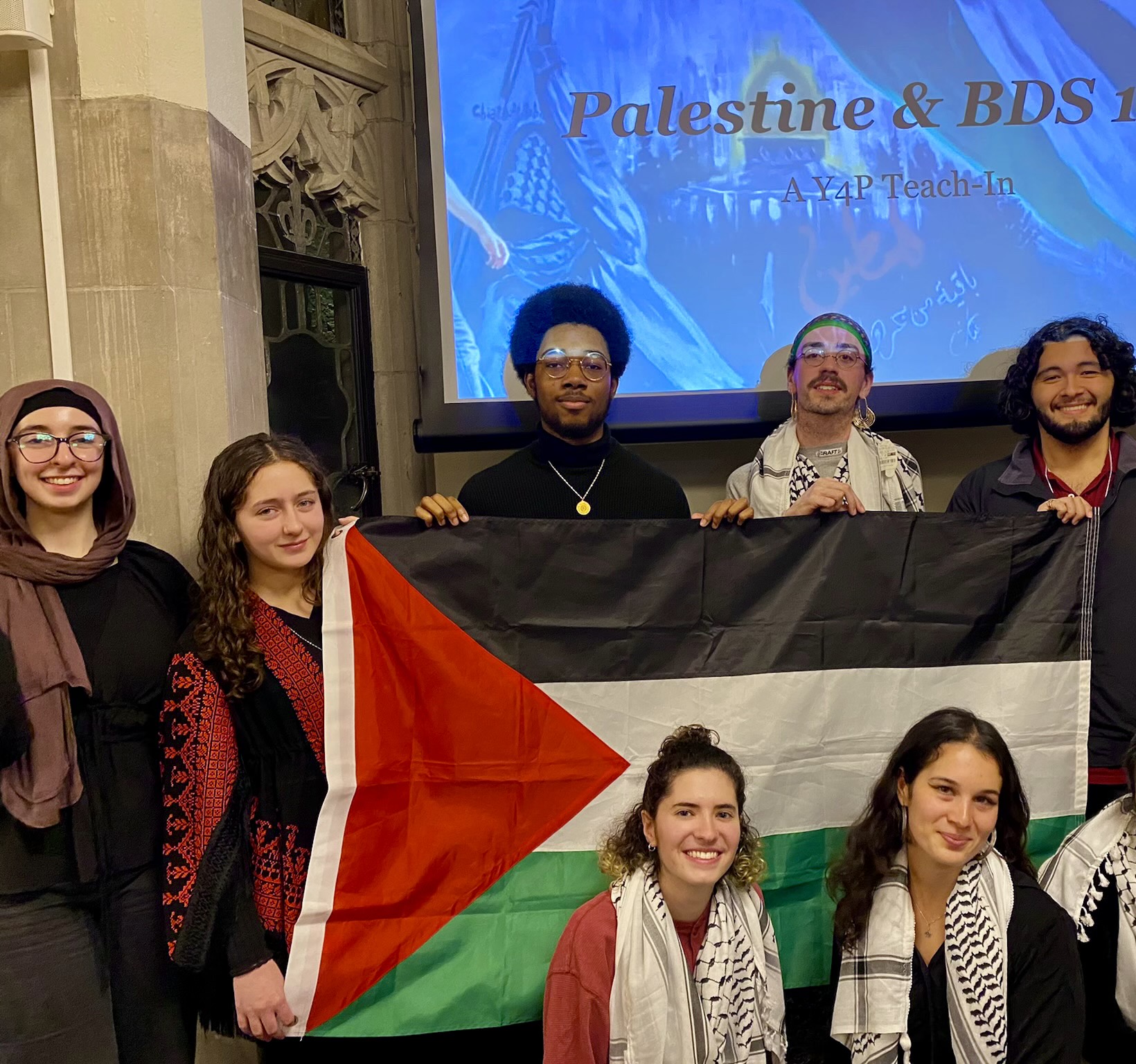Yalies 4 Palestine launches Boycott, Divestments, Sanctions campaign
Yalies 4 Palestine is heralding a BDS campaign to put pressure on the University to end its contract with G4S, a leading British security company that provides services for Israeli prisons detaining Palestinian political prisoners.

Courtesy of Yalies 4 Palestine
Until this semester, Yale was the only Ivy League college to have never had a Boycott, Divestment, Sanctions campaign — an international effort that works to end the oppression of Palestinians.
Yalies 4 Palestine, a campus group that has been cultivating conversations around human rights for Palestinians since 2019, is spearheading a BDS campaign that aims to terminate Yale’s contract with the security company G4S, which currently supplies much of the University’s surveillance, scanning and police department security services. The group is targeting this company specifically due to its alleged connections with the police and military violence committed against Palestinians and other minorities.
“Discourse around Palestine is so contentious and misconstrued at Yale that there has never been [a BDS campaign],” said Ruqaiyah Damrah ’23, a Yalies 4 Palestine organizer. “We’re hoping that our campaign will generate important discussions around what it means to stand in solidarity with oppressed and colonized people around the world and what we mean when we say that all struggles are fundamentally connected.”
In the summer of 2014, the University implemented the Symmetry SR Retrofit System, which is provided by a G4S owned technology branch. The scanning required for entering dining halls and dormitories is affiliated with the system, along with the tracking of anomalous behavior in research facilities throughout the institution.
Part of the issue is that the appeal of G4S technology is rooted in its efficiency and capacity for violence, according to BDS committee head Craig Birckhead-Morton ’24. He emphasized that this type of counter effort is not a new one, and that it was inspired by existing movements in the United Kingdom and other parts of the world to reduce the presence of G4S.
Beyond taking concrete actions — including hosting a Saturday afternoon teach-in on Palestinian history for members of the Yale community and launching a petition — the leadership at Yalies 4 Palestine hope that the BDS campaign will serve as a breakthrough conversation starter for a campus culture that has been largely silent on discourse surrounding Palestine.
Damrah said that currently, conversations on Palestine have been restricted by a confusion between general Palistine advocacy and anti-semitism, when, in reality, much of the advocacy on campus has less to do with Jewishness and more to do with “white supremacy modeled after European forms of colonialism.”
Angel Nwadibia ’25, one of the attendees at the teach-in, mentioned the existence of a “social media currency” that pressures users into siding with the majority without doing research — something affecting open discussion around Palestine.
The pressure is a feeling that Hanaé Yoshida ’25 knows all too well. When Yoshida left Jordan for Yale in 2019, Yalies 4 Palestine did not yet exist and she said campus discussion about Palestine was limited. Yoshida said that others were not able to differentiate between criticism and education, something that was a “culture shock” for her.
When Damrah co-authored a statement in response to the forced expulsion of Palestinians in Sheikh Jarrah in summer 2020, she was swept into waves of media responses and online attacks. Among the criticism included two campus student groups — Hillel and the Joseph Slifka Center for Jewish life at Yale — condemning the statement for having “antisemitic overtones.”
What she was particularly disappointed by, however, was the fact that overseas outlets like the Israel Times covered the group’s statement and the News did not, which she said evidenced the limited space for campus discourse on the issue.
In a similar vein, Birckhead-Morton is hopeful that the Yale BDS campaign will spark a new public consciousness of the challenges confronting Palestinians, stating that fragments of the oppression of Palestinians are very present and personal in the life of Yale students because of the University’s ties with G4S.
“We’re hoping to increase pressure on Yale’s administration to question their affiliation with a company that so blatantly participates in human rights violations and imperial violence around the world,” Damrah said.
138 countries around the world currently recognize Palestine as a country.
Nathaniel Rosenberg contributed to the reporting in this article.







